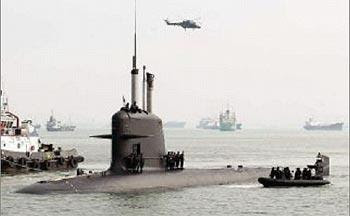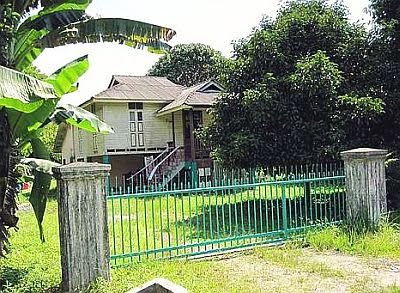Tibet: Seventeen Point of Agreement
Tibet is situated between the two ancient civilizations of central China and India, but separated by Tibetan Plateau and the Himalayas. Tibet is nicknamed "the roof of the world" or "the land of snows". In 1950 China People's Liberation Army invaded Tibet and defeated the Tibetan Army at Chamdo. Oct 7, 1950, the Tibetan government appealed for help to the United Nations but no assistance was given. In 1951, China government and representatives of the Dalai Lama signed the "17 point agreement for the Peaceful Liberation of Tibet". On paper, the agreement provides the Tibetan people the right to exercise national regional autonomy unfortunatley it's was never implemented. The repression from China central government since then continued until today.
"17 point agreement";
1. The Tibetan people shall be united and drive out the imperialist aggressive forces from Tibet; that the Tibetan people shall return to the big family of the motherland - the People's Republic of China.
2. The Local Government of Tibet shall actively assist the People's Liberation Army to enter Tibet and consolidate the national defenses.
3. In accordance with the policy towards nationalities laid down in the Common Programme of the Chinese People's Political Consultative Conference, the Tibetan people have the right of exercising national regional autonomy under the unified leadership of the Central People's Government.
4. The Central Authorities will not alter the existing political system in Tibet. The Central Authorities also will not alter the established status, functions and powers of the Dalai Lama. Officials of various ranks shall hold office as usual.
5. The established status, functions, and powers of the Panchen Lama shall be maintained.
6. By the established status, functions and powers of the Dalai Lama and of the Panchen Lama is meant the status, functions and powers of the 13th Dalai Lama and of the 9th Panchen Lama when they were in friendly and amicable relations with each other.
7. The policy of freedom of religious belief laid down in the Common Programme of the Chinese People's Political Consultative Conference will be protected. The Central Authorities will not effect any change in the income of the monasteries.
8. The Tibetan troops will be reorganized step by step into the People's Liberation Army, and become a part of the national defense forces of the Central People's Government.
9. The spoken and written language and school education of the Tibetan nationality will be developed step by step in accordance with the actual conditions in Tibet.
10. Tibetan agriculture, livestock raising, industry and commerce will be developed step by step, and the people's livelihood shall be improved step by step in accordance with the actual conditions in Tibet.
11. In matters related to various reforms in Tibet, there will be no compulsion on the part of the Central Authorities. The Local Government of Tibet should carry out reforms of its own accord, and when the people raise demands for reform, they must be settled through consultation with the leading personnel of Tibet.
12. In so far as former pro-imperialist and pro-Kuomintang officials resolutely sever relations with imperialism and the Kuomintang and do not engage in sabotage or resistance, they may continue to hold office irrespective of their past.
13. The People's Liberation Army entering Tibet will abide by the above-mentioned policies and will also be fair in all buying and selling and will not arbitrarily take even a needle or a thread from the people.
14. The Central People's Government will handle all external affairs of the area of Tibet; and there will be peaceful co-existence with neighboring countries and the establishment and development of fair commercial and trading relations with them on the basis of equality, mutual benefit and mutual respect for territory and sovereignty.
15. In order to ensure the implementation of this agreement, the Central People's Government will set up a military and administrative committee and a military area headquarters in Tibet, and apart from the personnel sent there by the Central People's Government it will absorb as many local Tibetan personnel as possible to take part in the work. Local Tibetan personnel taking part in the military and administrative committee may include patriotic elements from the Local Government of Tibet, various district and various principal monasteries; the name list is to be prepared after consultation between the representatives designated by the Central People's Government and various quarters concerned, and is to be submitted to the Central People's Government for approval.
16. Funds needed by the military and administrative committee, the military area headquarters and the People's Liberation Army entering Tibet will be provided by the Central People's Government. The Local Government of Tibet should assist the People's Liberation Army in the purchases and transportation of food, fodder, and other daily necessities.
17. This agreement shall come into force immediately after signatures and seals are affixed to it.
I don't agreed, if people suggest to boycott the Olympic games as a sign of protest to China's administration on Tibet but then I don't agree too, if China government says the world citizens interfering in China's internal affairs. Tibet is not purely an-internal affairs of China. UN Charter, Article 1.2 clearly stated, one of the goal of UN is "To develop friendly relations among nations based on respect for the principle of equal rights and self-determination of peoples, and to take other appropriate measures to strengthen universal peace" and on top of that "International Covenant on Civil and Political Rights" Article 1 says, "All people have the right to self determination" therefore all the UN members including China must give a respect to the principle of UN Charter and ICCPR.


Comments